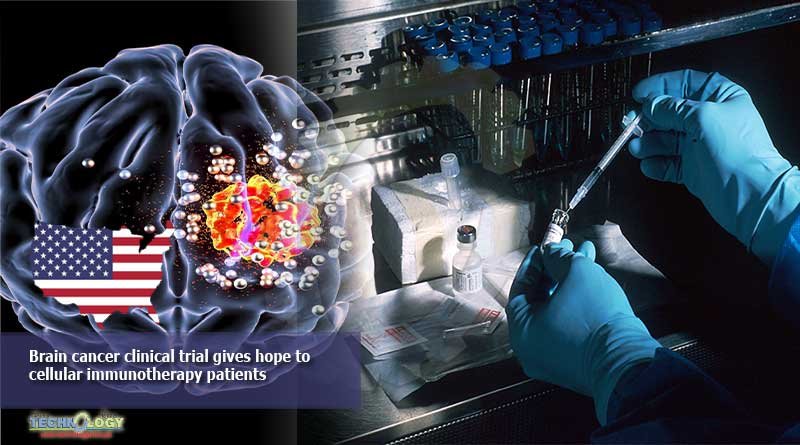Queensland researchers have found that patients who received a cellular immunotherapy for the deadly brain cancer glioblastoma multiforme (GBM) in a clinical trial on average survived longer than would have been expected without the treatment.

The team also found the treatment was safe and identified clues that will help them improve it in future.
The results of the phase I clinical trial have been published in the Journal of Clinical Investigation.
GBM is the most common malignant brain tumour in adults. It is a particularly aggressive cancer that usually recurs quickly after treatment. Patients survive an average of 14-17 months after diagnosis.
The cellular immunotherapy was developed by the head of QIMR Berghofer’s Centre for Immunotherapy and Vaccine Development, Professor Rajiv Khanna AO, and his team.
It was tested in a phase I (safety) clinical trial of 25 patients at Briz Brain cancer and Spine in collaboration with neurosurgeon Professor David Walker.
Professor Khanna said the patients were given the immunotherapy as a supplementary treatment after receiving surgery, chemotherapy and/or radiation.
“At the end of this clinical trial, 10 patients were still alive and five of those still had no signs of their cancer recurring,” Professor Khanna said.
“The 25 patients who received the treatment survived for an average of 21 months. This is an improvement on the current survival rates.
“The results were even better in the 20 patients who received the immunotherapy before their tumours had recurred. Those patients survived for an average of 23 months, which is six to nine months better than we would have expected without this treatment.
“Considering GBM is a highly deadly cancer, these are very promising results.”
Neurosurgeon Professor David Walker said the trial had confirmed the treatment was safe for use in GBM patients.
“None of the patients experienced any adverse effects from the immunotherapy, which gives us confidence in progressing further clinical trials,” Professor Walker said.
“We have previously conducted another clinical trial where we gave this treatment to patients after their GBM had already recurred following initial treatment.
“While that earlier trial prolonged survival, in this trial, we were excited to see that some patients who received the immunotherapy earlier, before recurrence, had further improvements in survival.
“Brain cancer survival rates have hardly changed in decades. This trial gives us hope that we might be on the cusp of changing that.”
The cellular immunotherapies are produced by taking blood samples from patients and ‘turbo-charging’ their immune cells, known as T cells, in the laboratory to recognise and destroy the cytomegalovirus (CMV), which is present in the tumour cells.
Professor Khanna said they found the patients who survived had better T cell immunity to the cytomegalovirus.
“The treatment each patient received was produced with their own immune cells.
“We did a genomic analysis of each patient’s immunotherapy and found that patients with certain gene signatures inside their immune cells had better results.
“This is important because it tells us what improves the quality of these cellular immunotherapies and lets us know what markers we should be looking for in patients’ cells.
“It also opens the door to producing cellular immunotherapies using healthy donor immune cells that contain those gene signatures.”
Queensland’s Deputy Premier and Minister for Health, Steven Miles, has welcomed the promising results.
“Brain cancer are usually aggressive and have poor survival outcomes, so any new treatment that prolongs patients’ lives is very welcome,” Mr Miles said.
“It is great to see Queensland’s medical research institute working at the global forefront of research into immunotherapy.”
As a next step, the team hopes to conduct another clinical trial combining the cellular immunotherapies with other forms of immunotherapy.
The cellular immunotherapies were produced at QIMR Berghofer’s specialist cell manufacturing facility, Q-Gen Cell Therapeutics.
The trial was funded by the National Health and Medical Research Council (NHMRC) and philanthropic donors.
The news is originally published at mysunshinecoast.
